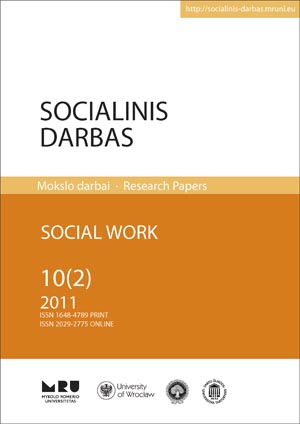Profesijos patarėjo veiklos profesinio orientavimo sistemoje prielaidos
Assumptions of the Work of a Vocational Adviser within the Vocational Guidance System
Author(s): Asta RailienėSubject(s): Social Sciences
Published by: Mykolas Romeris University
Keywords: vocational adviser; vocational guidance; vocational guidance system
Summary/Abstract: Preparation for vocational work is an especially important process of personal development, requiring relevant skills, capacities and conditions for self-cognition, accumulation of information on the current labour market and identification of his/her relations with the market. High-quality vocational guidance services are important both for the education system, labour market, and for the interaction between the two systems. These services are a constituent part of the active labour market policy and one of the main elements of training and employment policy at the national, regional and local level. Vocational guidance within the European Union context is considered as one of the main factors promoting life-long learning, employment, adaptation of labour force to market conditions, entrepreneurship and equal opportunities. The object of this research: assumptions of the work of a vocational adviser. The goal of the research is to analyze theoretical assumptions of the work of a vocational adviser within the Lithuanian vocational guidance system. According to the research object, the following problem questions are formulated: what functional components of vocational guidance as a system are identified? What are the legal normative assumptions of vocational adviser’s activity within the vocational guidance system? What assumptions of vocational adviser’s activity are identified in the context of vocational guidance services providers and recipients? The analysis of assumptions of the work of a vocational adviser within the vocational guidance system is made according to principles of investigation of educational reality and theory of education levels.
Journal: Socialinis darbas
- Issue Year: 10/2011
- Issue No: 2
- Page Range: 157-168
- Page Count: 12
- Language: Lithuanian

